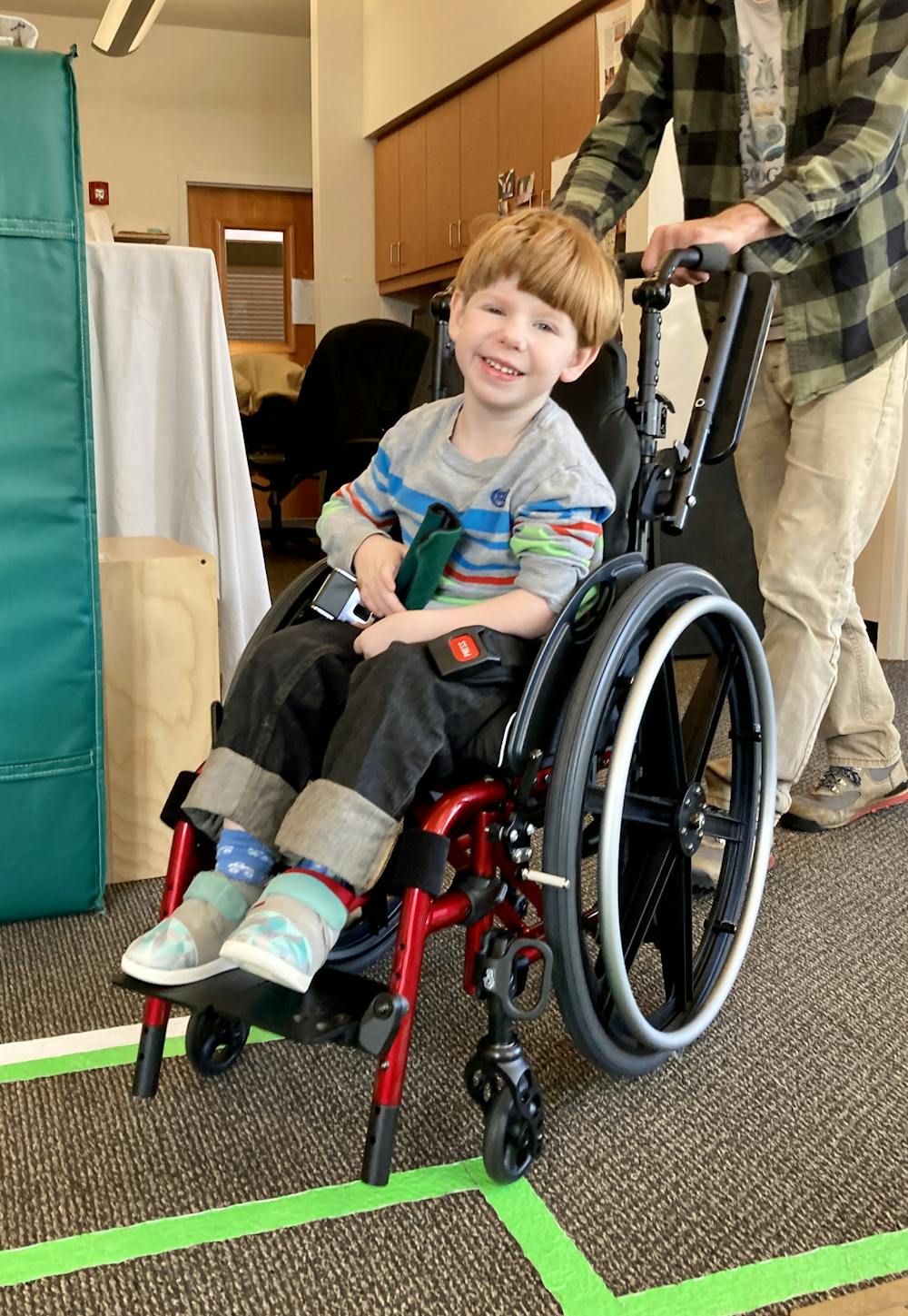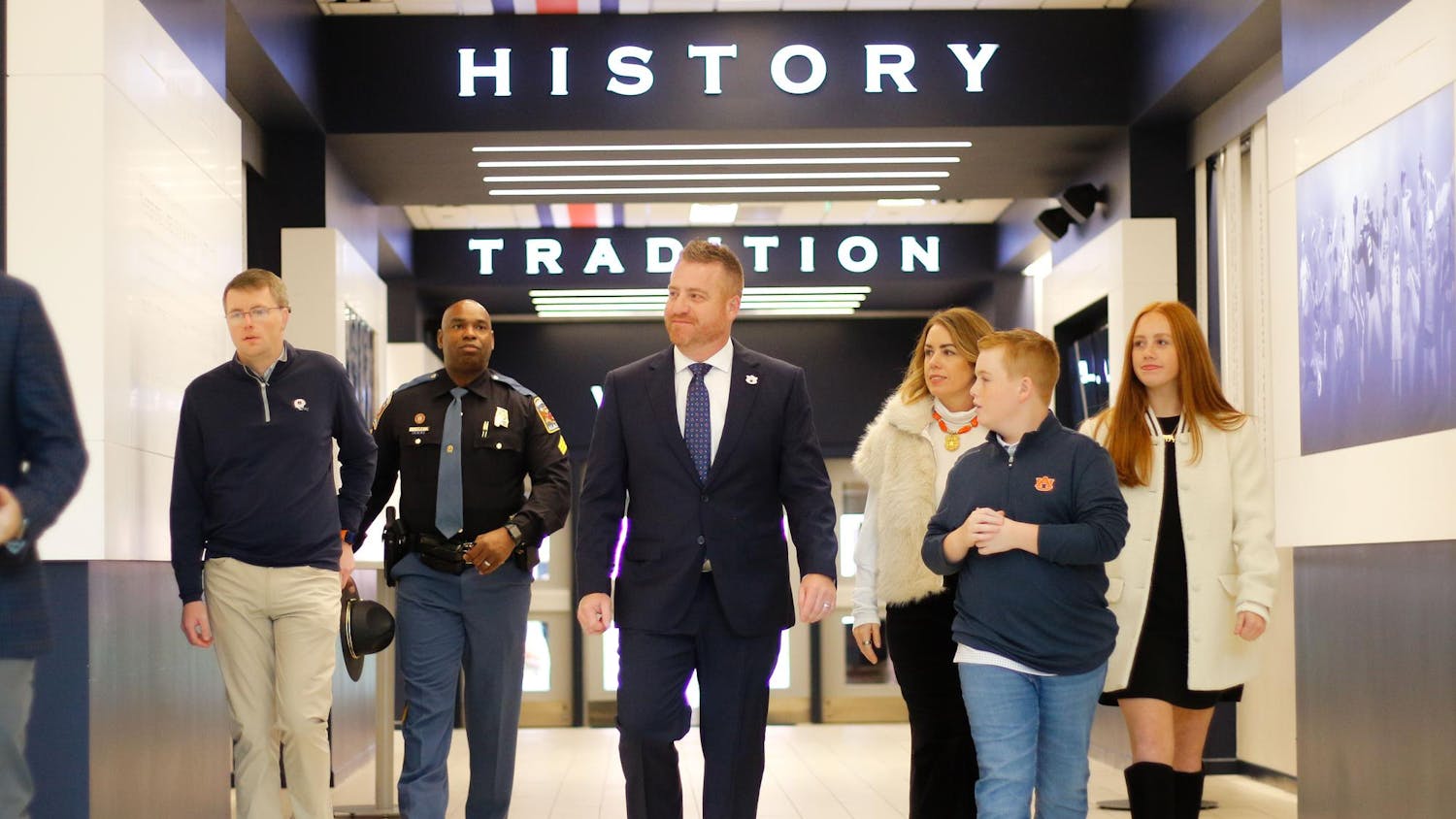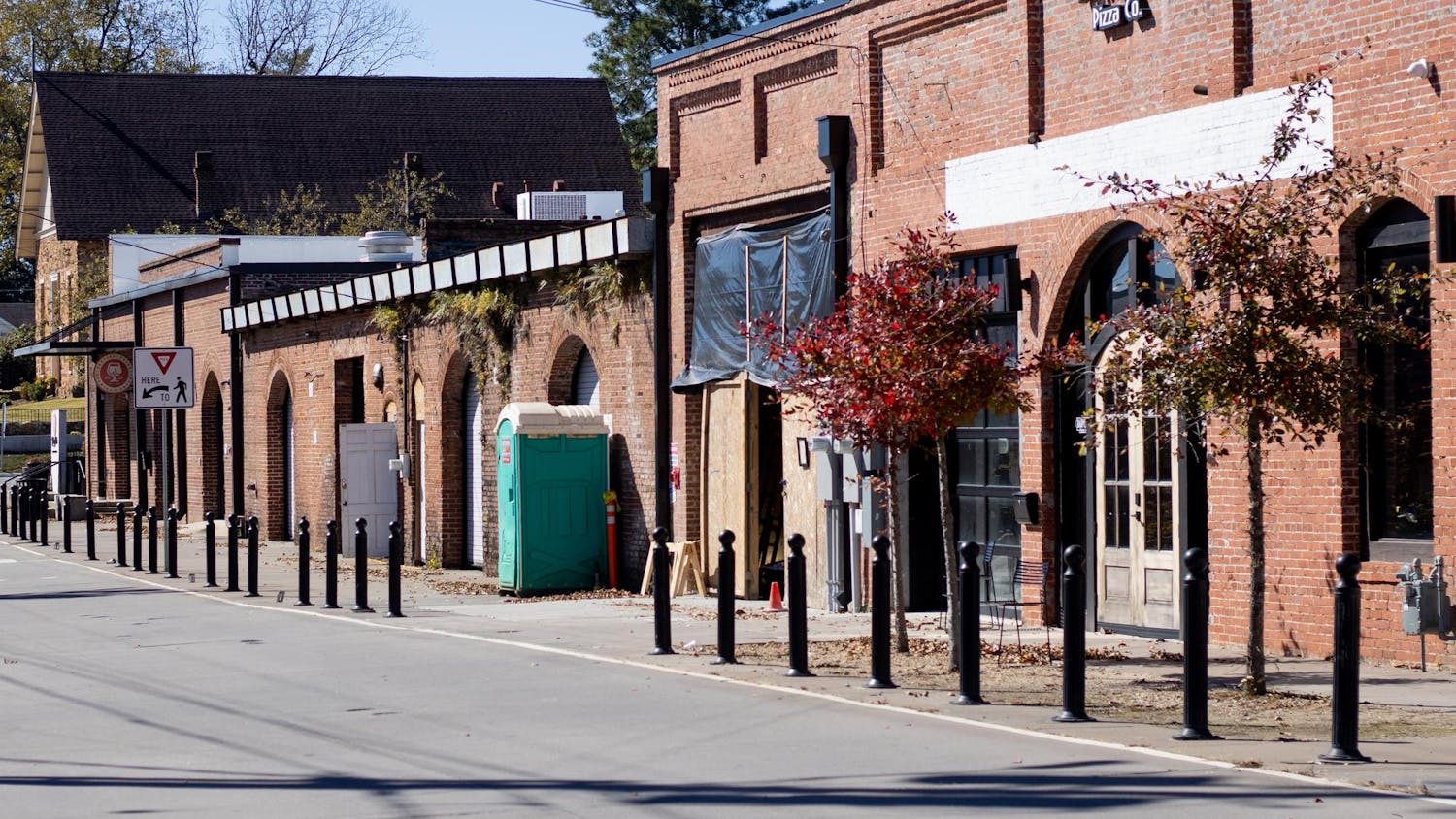Emmett Belcher, a six-year-old boy who is a kindergartner at Cary Woods Elementary School, is currently in the running for an adaptive bicycle that would help him enjoy his time outside despite having a disability.
Belcher was born with a condition called Hemimegalencephaly, a rare genetic condition that causes one part of the brain to be abnormally larger than the rest. This condition causes intractable epilepsy—epilepsy that does not stop with treatment.
According to his mother Annie Campbell, an associate professor of art and art history at Auburn University, her son was having between 20 to 40 seizures a day before having an operation done that would disconnect the unhealthy part of the brain from the healthy part.
“For some, it stops the seizures completely,” Campbell said. “For him it did for two years. He still has a few at night, but it’s not bad at all.”
Despite having this procedure, Campbell said that damage was left from the initial seizures Belcher had, as well as from the procedure which “had significant consequences, as you might think,” according to Campbell.
While Belcher has been through a lot in his six years, Campbell said people are often amazed at how well he functions, noting that most assume the seizures and procedure did more damage that it truly did.
“He can walk for short distances,” Campbell said. “But the main thing with the surgery—and with regards to the bike—is that it causes cerebral palsy, so he has left-sided weakness and has some intellectual disabilities.”
At the moment, Belcher has a tricycle that he can use to be active, but Campbell said he is quickly outgrowing it and that it just was not made with disabled people in mind.
For this reason, Campbell entered her son into the Great Bike Giveaway from Friendship Circle, and voting last until March 29. The contest gives away several adaptive bikes, and the bike that Belcher is in the running for is the Freedom Concepts Tandem.
The Tandem has two seats. The back seat gives an able-bodied driver the ability to steer and control the bicycle, while the front seat allows someone with visual or physical disabilities to be safely secured to the seat and enjoy cycling.
“Getting it would be huge in regard to mobility and outdoor recreation,” Campbell said. “With his existing trike, we have to pull it with a rope and have him kind of tied in, but he can still sometimes tip out of it.”
Campbell said Belcher is “sensory seeking” and loves to swing and be pulled quickly in a wagon. With this adaptive bike, Belcher will be able to have his hands strapped properly and his feet strapped to the pedals so he can feel their movement.
Being outdoors and being active is something that Campbell’s family loves. If Belcher were able to win the Tandem, it would make their time outside much more fun and much more accessible, according to Campbell.
One thing that Campbell stressed was that voting only took seconds. It did not require a login or an account. Potential voters were able to simply go to the Great Bike Giveaway’s website and vote or donate, and every vote and donation helps.
While whoever has the most votes of all the candidates is sure to win an adaptive bike, Campbell said that if anyone else in the top five finalists who have raised at least half the money required for the bike—approximately $3,000 as the bike is about $6,000 total—they are also likely to receive a bike as it acts like a fundraiser because Friendship Circle partners with adaptive bike companies to provide these contenders with the same equipment at a discounted price.
Even if Belcher did not receive the votes or donations, Campbell also said that the money that is not used to purchase a bike is cycled back through and applicable next year to whoever is entered in it then.
Through all the media attention Campbell raised for her son, she said she likes to always mention one thing, and that is why this competition exists in the first place.
“The reason this whole thing exists is because Medicaid doesn’t cover what is deemed “unnecessary,’” Campbell said. “A lot of us would argue that being outdoors and getting exercise is necessary, but Medicaid has to draw a line somewhere, and they don’t cover this.”
She also said that she wanted to use her time to raise awareness about accessibility and challenged all able-bodied people to just try to visualize what it would be like to navigate their everyday surroundings as someone with a disability.
“It starts with awareness,” Campbell said. “Then action.”
Do you like this story? The Plainsman doesn't accept money from tuition or student fees, and we don't charge a subscription fee. But you can donate to support The Plainsman.

Tucker Massey, senior in journalism, is the content editor for The Auburn Plainsman.





